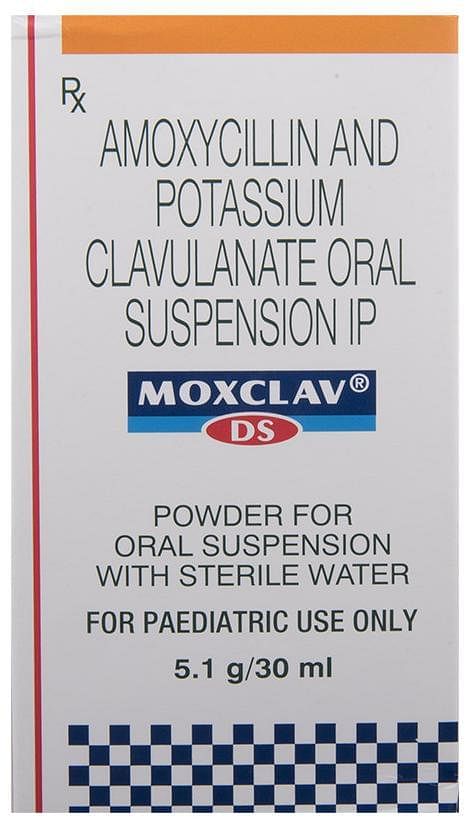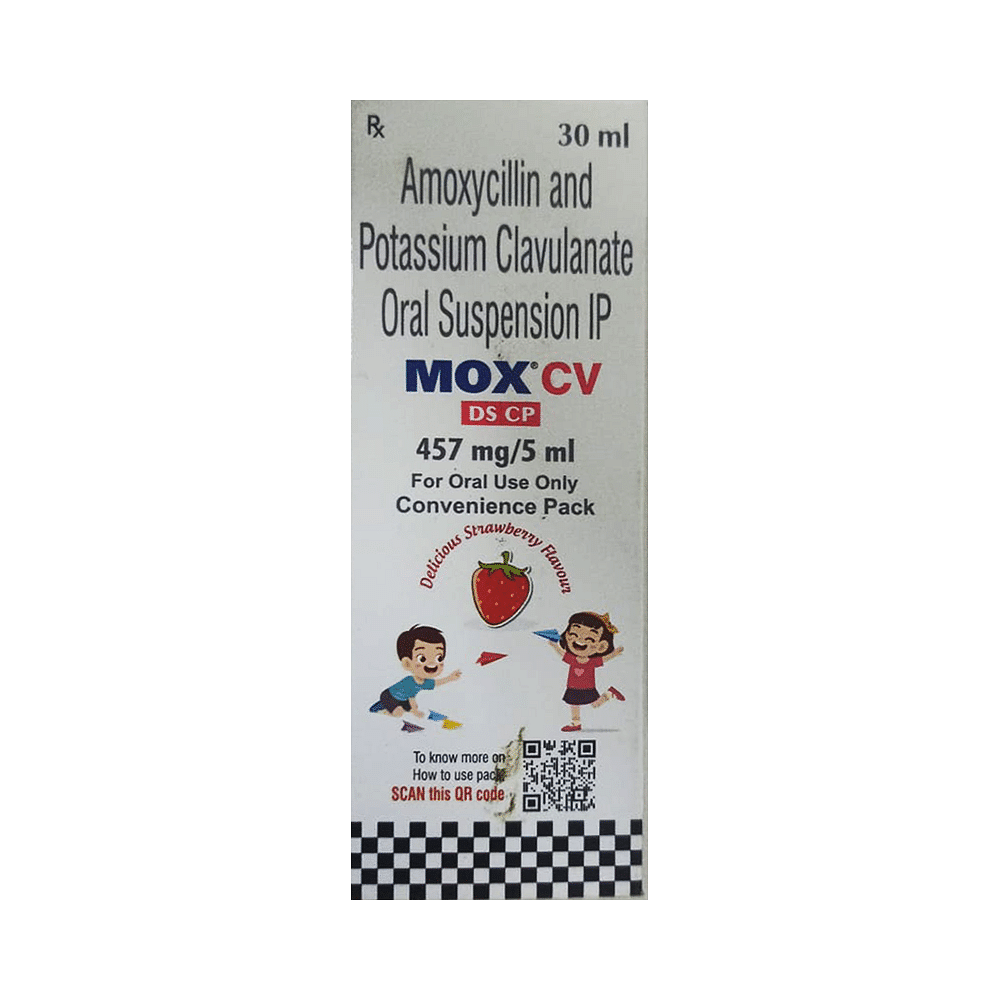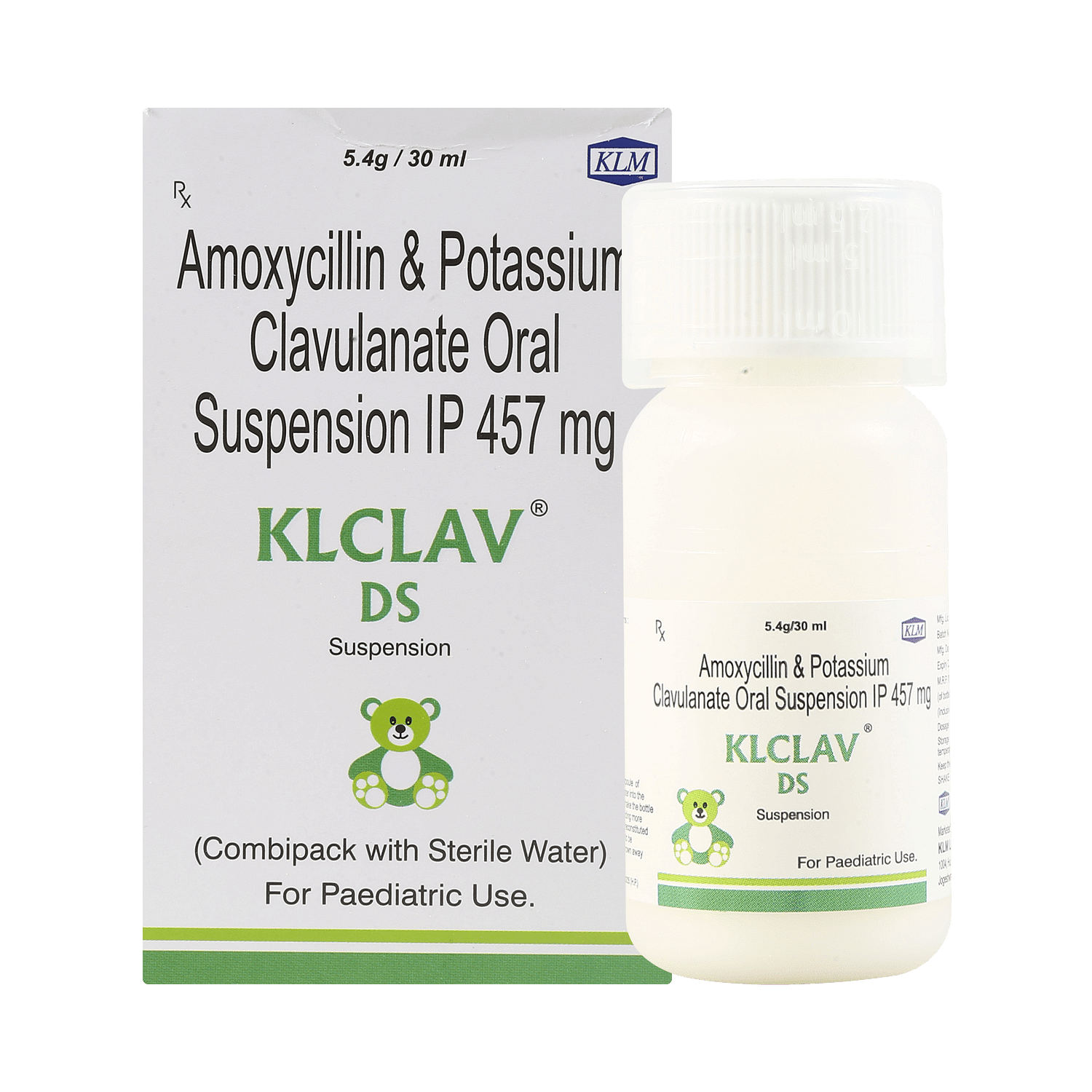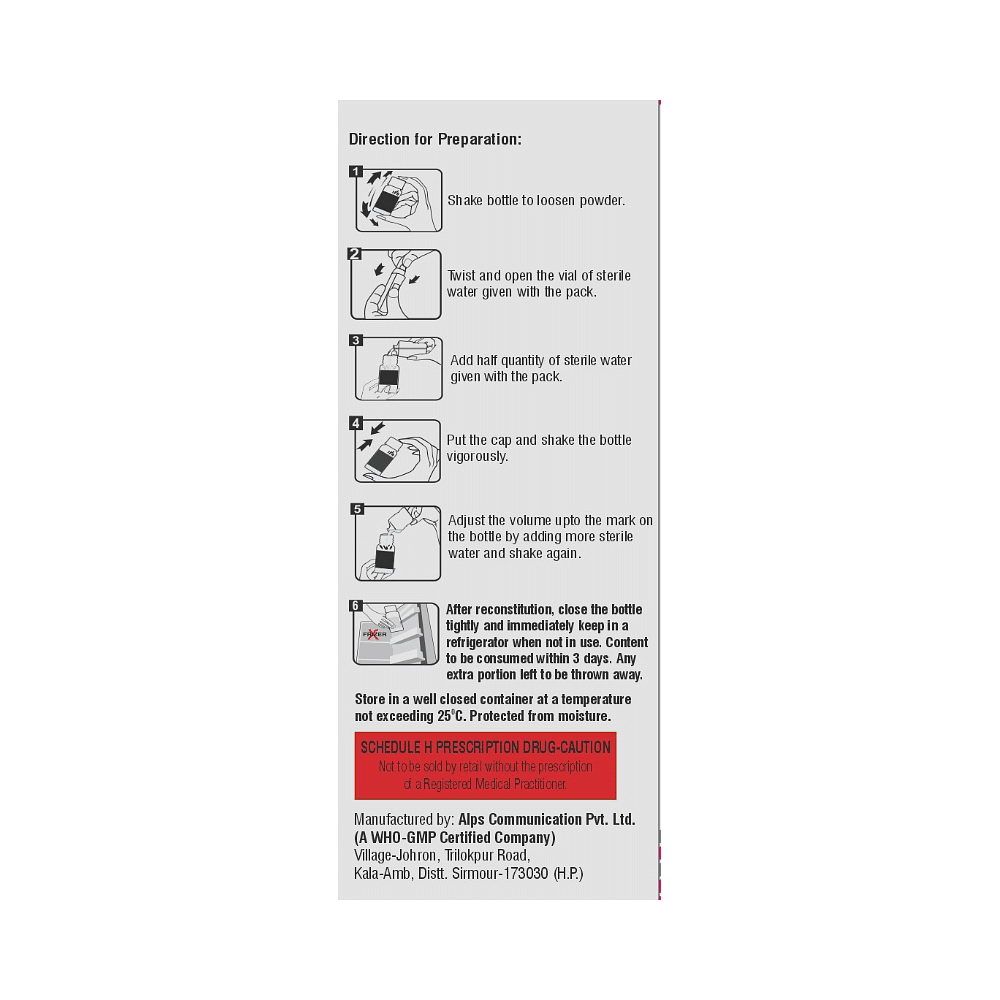
Clarence DS Duo Oral Suspension
Manufacturer
Khandelwal Laboratories Pvt Ltd
Salt Composition
Amoxycillin (400mg) + Clavulanic Acid (57mg)
Key Information
Short Description
Clarence DS Duo Oral Suspension is an antibiotic medicine that helps treat bacterial infections of the ear, nose, throat, chest, lungs, teeth, skin, and urinary tract.
Dosage Form
Oral Suspension
Introduction
Clarence DS Duo Oral Suspension is an antibiotic medicine that helps treat bacterial infections of the ear, nose, throat, chest, lungs, teeth, skin, and urinary tract. It is capable of killing bacteria that have become resistant to other therapies and thus also helps treat tuberculosis that is resistant to other treatments.
Directions for Use
Your child must complete the entire course of antibiotics. Stopping too soon may cause the bacteria to multiply again or cause another infection.
How it works
Clarence DS Duo Oral Suspension is an antibiotic. It has two active agents amoxycillin and clavulanic acid. Amoxycillin works by preventing the formation of the bacterial protective covering (cell wall) essential for the survival of the bacteria. Whereas clavulanic acid serves a special purpose of inhibiting an enzyme (beta-lactamase) that is produced by resistant bacteria. This makes the combination of amoxycillin and clavulanic acid an effective line of treatment for many types of infections.
Quick Tips
Your child must complete the entire course of antibiotics. Stopping too soon may cause the bacteria to multiply again or cause another infection. Encourage your child to drink plenty of water in case diarrhea develops as a side effect. Never give Clarence DS Duo Oral Suspension until and unless prescribed by the doctor. Do not give Clarence DS Duo Oral Suspension to treat common cold and flu-like symptoms caused by viruses. Never save medicine for future illnesses. It cannot be said whether the same medicine will work on future infections.
Related Medicines

Moxclav DS 457mg Oral Suspension

Mox CV DS CP Oral Suspension Delicious Strawberry

Pteron-A Forte Oral Suspension

Klclav DS 457mg Oral Suspension

Claviox 457 Dry Syrup

Moxymart-CV 457 Dry Syrup

Amovid Duo Dry Syrup

Clavoxa-Forte 457mg Dry Syrup

Trueclam DS Oral Suspension

Ampiox Duo Dry Syrup
Frequently asked questions
Can other medicines be given at the same time as Clarence DS Duo Oral Suspension?
Clarence DS Duo Oral Suspension can sometimes interact with other medications or substances. It's crucial to inform your doctor about all the medications your child is taking before starting Clarence DS Duo Oral Suspension. Additionally, always consult with your child's doctor before administering any medication to your child.
Can I get my child vaccinated while on treatment with Clarence DS Duo Oral Suspension?
Generally, antibiotics do not interfere with the ingredients in vaccines or cause a negative reaction. However, children taking antibiotics should not receive vaccinations until they recover from their illness. Once your child feels better, the vaccine can be administered.
Which lab tests may my child undergo while taking Clarence DS Duo Oral Suspension on a long-term basis?
Over extended therapy, periodic kidney and liver function tests might be needed to monitor your child's condition.
Can I give a higher than the recommended dose of Clarence DS Duo Oral Suspension to my child?
No, exceeding the recommended dosage can raise risks of side effects. If your child experiences worsening symptoms, consult your doctor for reevaluation.
Can I stop giving Clarence DS Duo Oral Suspension to my child when the symptoms are relieved?
No, do not discontinue this medication unless you have completed the full course of treatment, even if you perceive improvement. Symptoms may improve before the infection is fully cleared; therefore, continue the medicine for its prescribed duration to ensure optimal effects.
Can the use of Clarence DS Duo Oral Suspension cause diarrhea?
Yes, Clarence DS Duo Oral Suspension can sometimes cause diarrhea. This is because it's an antibiotic that kills harmful bacteria and also affects beneficial bacteria in your child's stomach. If your child experiences diarrhea, encourage them to drink plenty of fluids. In case of persistent diarrhea or signs of dehydration (reduced urination with dark-colored and strong-smelling urine), consult a doctor before administering any other medication.
Do all viral common colds result in secondary bacterial infection?
Most viral common colds do not lead to secondary bacterial infections. In fact, using antibiotics in a viral infection can increase the risk of side effects; therefore, consult with your child's doctor before administering them.
The mucus coming out of my child’s nose is yellow-green. Is it a sign of a bacterial infection?
Yellow or green mucus in the nose does not necessarily indicate a bacterial infection. It's common during a common cold for mucus to thicken and change color from clear to yellow or green. Symptoms often last 7-10 days.
Is there any sign which shows that my child needs immediate medical attention?
Seek immediate medical help if your child experiences serious allergic reactions (difficulty breathing, skin rashes), gastrointestinal infections (diarrhea), or liver damage (weakness, paleness, vomiting). While rare, these side effects demand immediate expert care.


